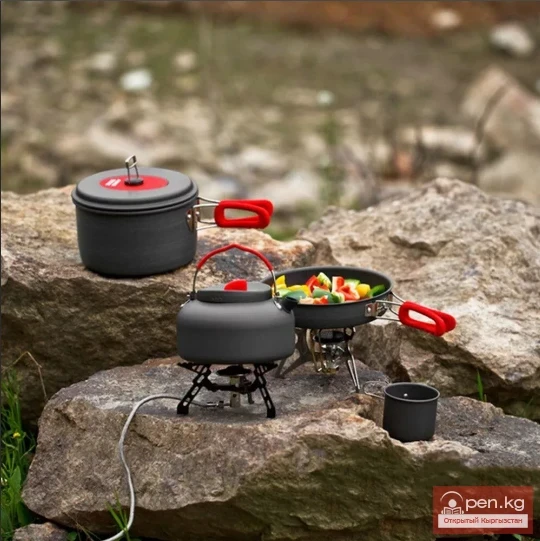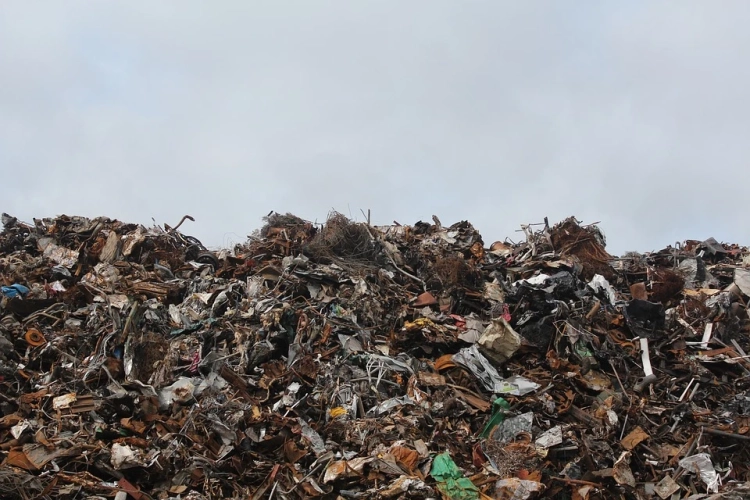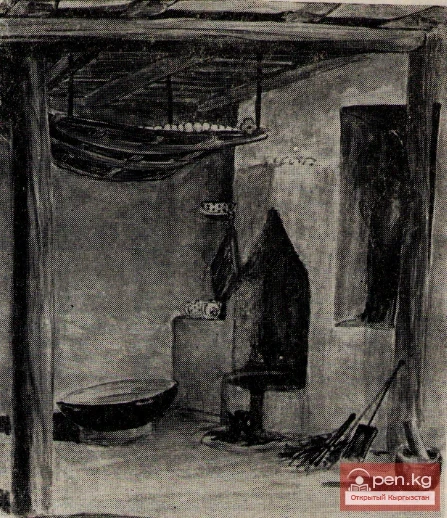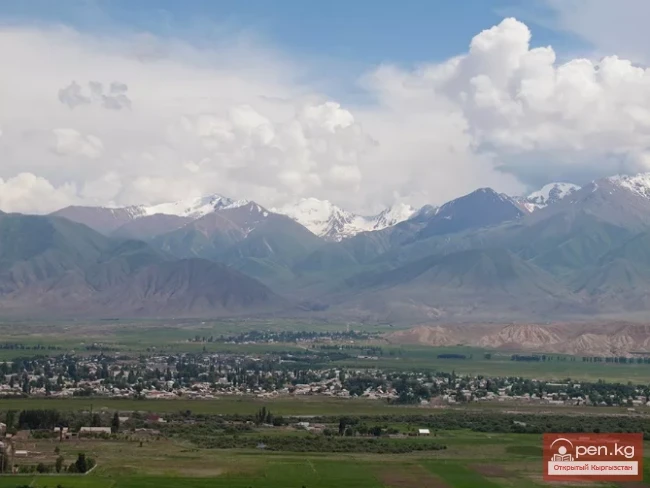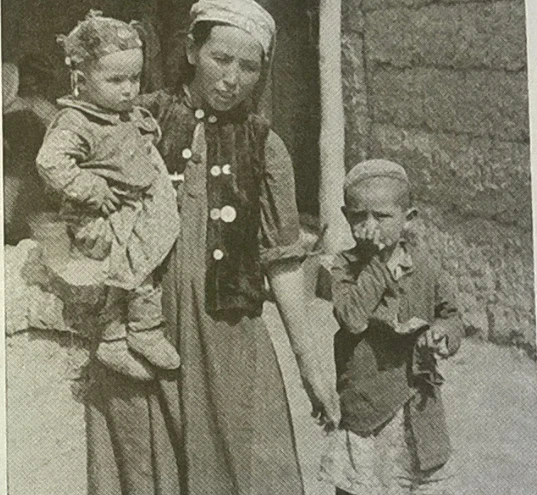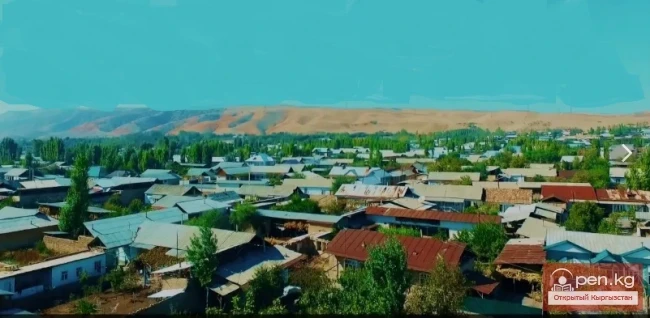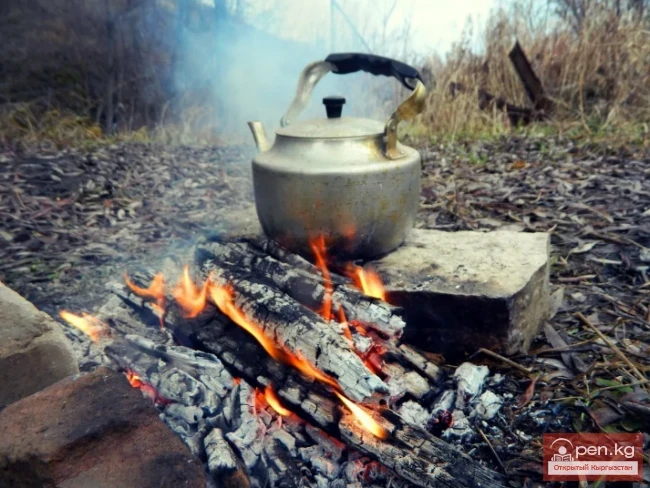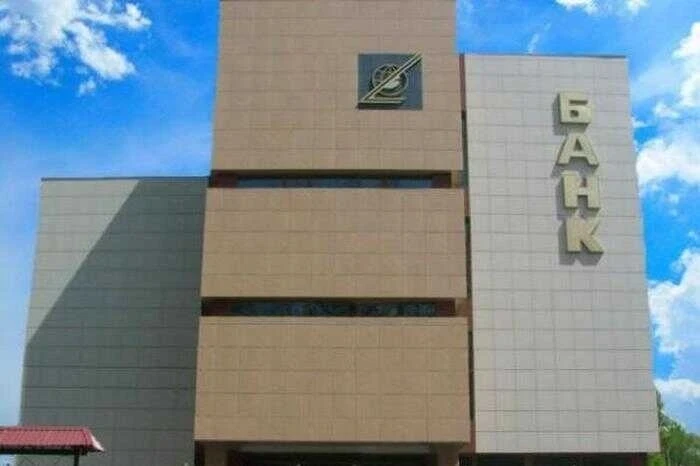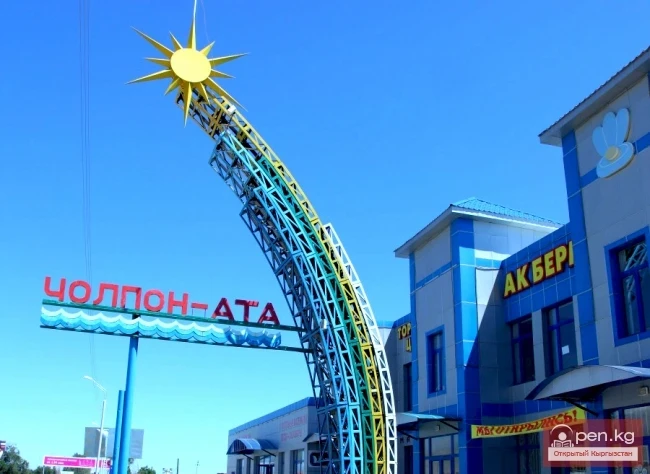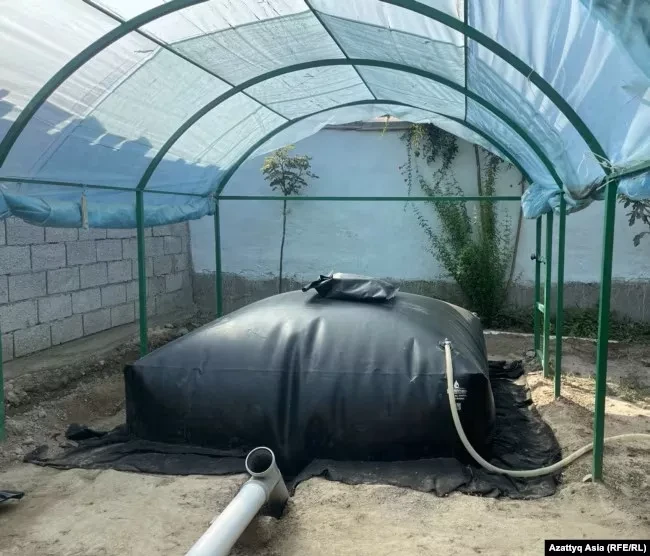
Bioreactors installed in homes not only produce gas for cooking and dispose of manure but also help in growing clean and safe vegetables.
However, these are not the only advantages of this system, as noted by Ozodi.
In a house located just 20 kilometers from Dushanbe, amidst blooming gardens, there operates a bioreactor that externally resembles a large inflatable mattress. Inside, a complex chemical process takes place: organic waste is transformed into clean biogas, which replaces traditional fuel—firewood and waste.
A Radio Free Europe journalist visited the village of Faizbakhsh in the Burunov district of Vahdat and spoke with a family of farmers who became the first owners of a biogas installation in this region six months ago. Three generations of this family have witnessed how a simple technology has changed their lives.
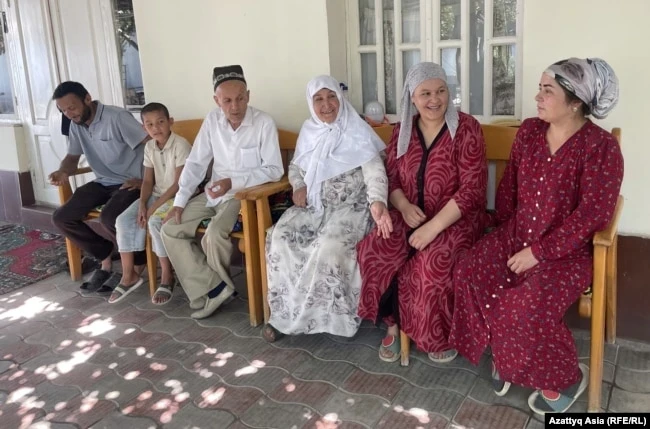
"Women are freed from hard labor"
The 67-year-old head of the family, Mirali Aliyev, was initially skeptical about the biogas installation, but now his family cannot imagine life without it. Neighbors are amazed at how gas can be obtained from organic waste and want to learn more about the system.
"It has saved us a lot of time. Previously, it took days to prepare tappi, now it only takes half an hour a day to mix the ingredients and load them into the bioreactor," he shares.
Joining the conversation is his 65-year-old wife Galatmo:
"The most important thing is that women no longer engage in hard physical labor," he adds.
A few months ago, they produced 3,000 to 4,000 tappi a year, which was a heavy burden for women already busy with household chores.
Tappi is a common fuel in hundreds of Tajik villages where there is no gas, and electricity is available only for a few hours. Manure is collected, mixed with straw or soil, shaped by hand, and dried in the sun. After that, it is used as firewood.
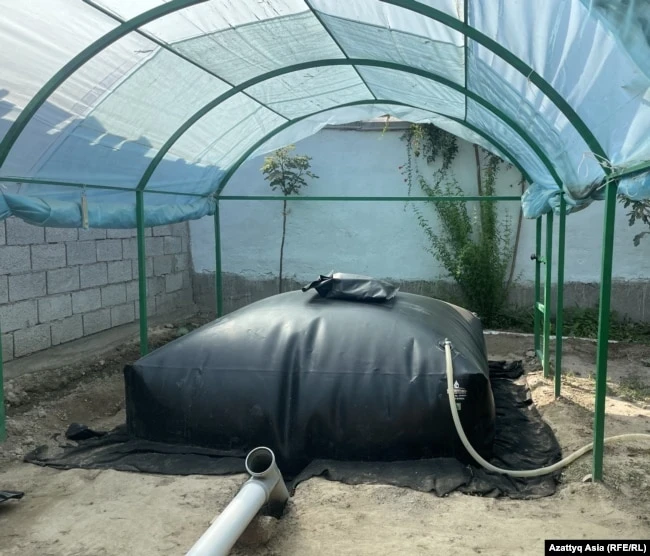
The smoke from burning tappi is harmful both to health and to the environment, and raw manure reduces soil fertility, especially in areas with a lack of organic resources.
"We have a large family—five children and four grandchildren. Previously, we spent a lot of time collecting firewood and preparing tappi, but now we have more time for the family," says Galatmo, while canning vegetables. "We are preparing supplies for winter: making compotes and pickles; right now, I'm working on cucumbers."
How the biogas device works
On the Aliyev farm, there are three cows, which provide "fuel" for their bioreactor. Every morning, Mirali Aliyev's grandson, Ilkhom, begins his usual task: he measures out 30-35 kilograms of manure, adds 70 liters of water, and mixes it thoroughly.
The ratio of "one to two" must be maintained. The resulting mixture is placed in the apparatus, from where it is pumped through pipes into a sealed bioreactor. After his work, Ilkhom washes his hands and rushes off to his university classes.
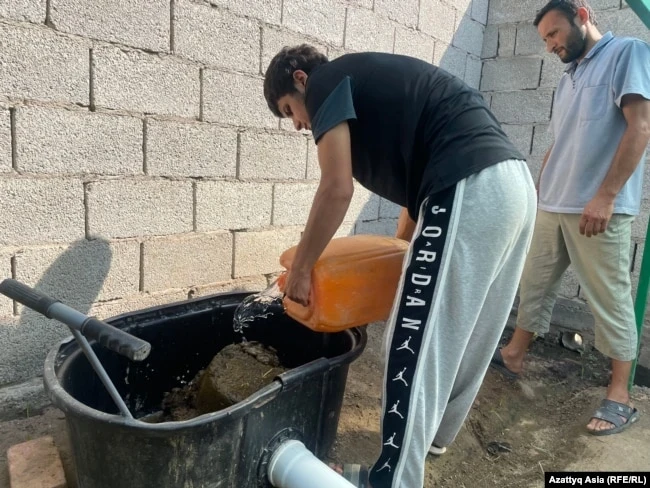
Inside the bioreactor, a fermentation process occurs: organic waste decomposes, forming biogas. The chamber of the device fills halfway, creating ideal conditions for gas formation.
The produced gas passes through a filter and stabilizer, and then is supplied to the kitchen through a pipeline for boiling water, cooking food, or washing dishes.
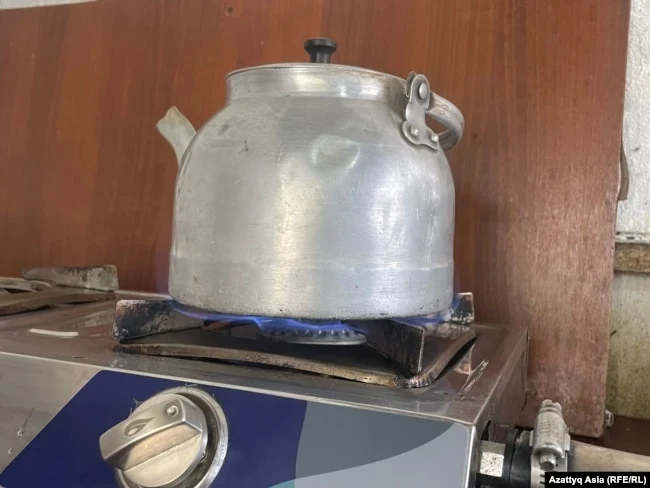
After processing, a useful product remains—fertilizer. It is sent to a special storage tank and used in garden and household plots, enriching the soil and promoting a healthy and abundant harvest.
41-year-old Jamshid, Mirali's son, reports that they use this fertilizer on the farm to grow vegetables not only for themselves but also for sale—potatoes, carrots, cucumbers, and tomatoes.
"Previously, we bought about a ton of mineral fertilizers a year," shares the farmer. "For example, last year we used 800 kilograms, and this year—only 200. A 50-kilogram bag costs 300 somoni (over 30 dollars), and this season we saved 4,800 somoni by switching to organic fertilizers."
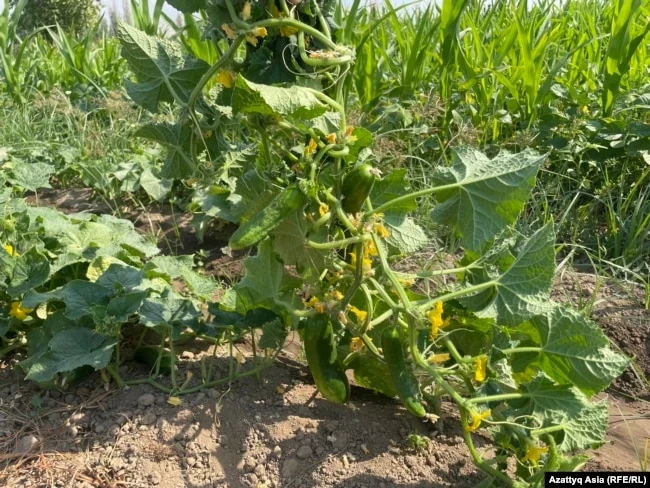
However, it's not just about savings. Jamshid adds that the quality of the harvest has noticeably improved since switching to natural fertilizers.
"Previously, when we used chemical fertilizers, jars of pickles, especially with tomatoes and cucumbers, often spoiled. This year, thank God, not a single jar has spoiled," notes the farmer.
Jamshid also observed that:
"The watermelon season has already ended for us," he says. "But the soil enriched with organic matter is still 'alive.' We harvested, but small watermelons—sweet and juicy—are still growing in the fields. This means the soil remains fertile even after the harvest."
Now buyers come to the Aliyevs' for their products.
"They buy products in bulk, straight from the farm. People know that our products are environmentally friendly," Jamshid proudly states.
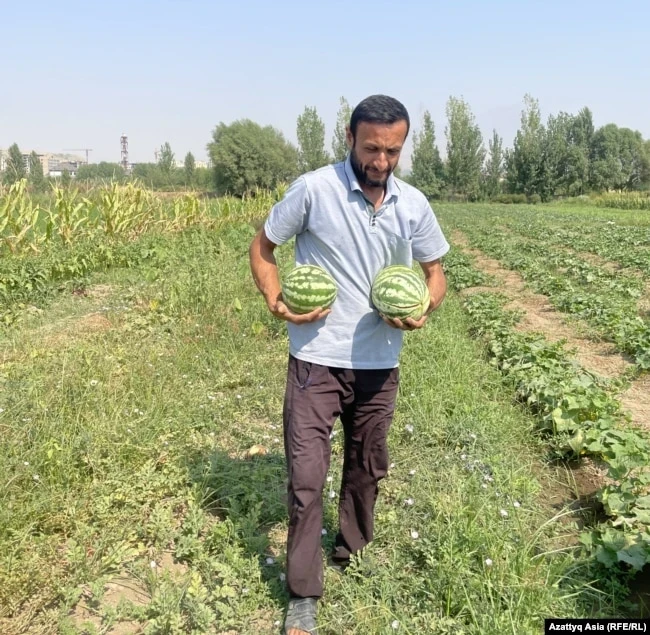
Jamshid notes that neighboring villages are also showing interest in biogas installations.
"A neighbor saw that our cucumbers are very productive and decided to do the same by fertilizing the plow. I warned him that such manure might contain weed seeds, and then the land would become overgrown. But our fertilizer from the bioreactor has undergone thermal treatment and fermentation, which destroys all seeds and pathogenic bacteria. The soil remains clean, and the vegetables grow tasty and chemical-free. Now my neighbor is asking where he can buy such a unit," he shares.
The project and its goals
The project, implemented by the United Nations Development Programme (UNDP) in collaboration with the local company "Nexigol Mushovir," will cover several regions of Tajikistan starting in 2024, including the Khatlon region and neighboring areas. Currently, 37 bioreactors have been installed across the country.
"In developing this pilot project, we considered several key factors," says UNDP representative Suhrob Raupov. In rural areas, women and children spend a lot of time collecting and processing manure, and burning it in stoves harms health and pollutes the air. We aimed to free them from this hard labor, improve the condition of the land and harvest, and create opportunities for savings or additional income for families. If they have excess manure, they can sell it to neighbors or farmers."
According to project manager Abduhabib Akhunjanov, bioreactors vary in size and performance. The smallest model, System-6, is designed for the manure of two to three cows, allowing an average family to obtain enough biogas for cooking. Larger installations are suitable for farms where biogas can be converted into electricity.
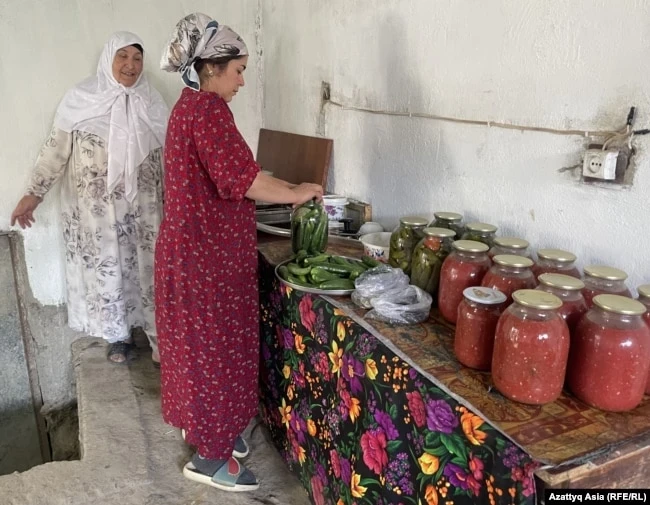
"The small bioreactor is easy to use," says Akhunjanov. "Every family member can familiarize themselves with the safety rules. You just need to add manure mixed with water, and the process will start by itself."
The "System-6" installation cost the Aliyev family 28,800 somoni (just over three thousand dollars), including delivery, installation, and consulting services. The family covered 10% of the cost, while the rest was funded by a UNDP grant. The device was manufactured in India and comes with a ten-year warranty.
"According to our estimates, the costs will be recouped in just six months due to savings on fuel and the use of organic fertilizers," emphasizes Akhunjanov.

Another important aspect of this technology is its impact on the environment.
"The use of biogas reduces emissions into the atmosphere and decreases deforestation, as families abandon firewood and coal. We also observe an improvement in soil quality," notes Akmaljon Nasrulloev, deputy director of "Nexigol Mushovir." "As an agrochemist and soil scientist, I analyzed the composition of the manure left after processing. It is very rich in nutrients and significantly increases soil fertility."
Suhrob Raupov also reported that UNDP plans to expand the project and hopes that this technology will soon be accessible to all rural residents.
"It's not just about savings and comfort, but also about improving health, protecting nature, and increasing productivity. This is extremely important for the future of rural areas," he concludes.

